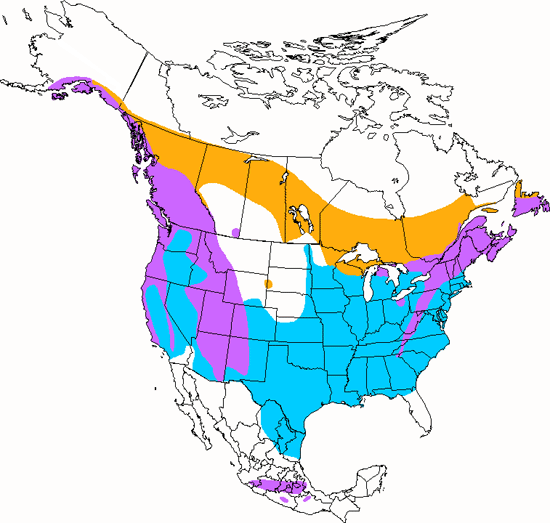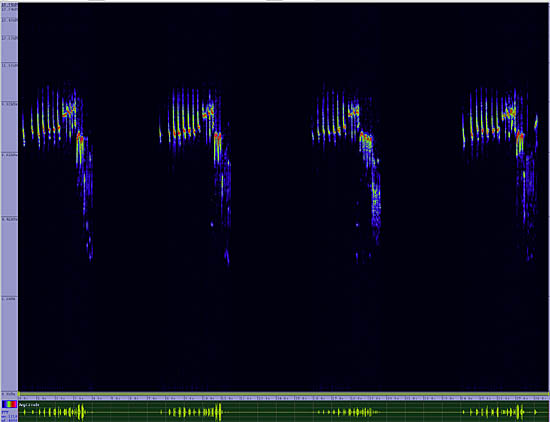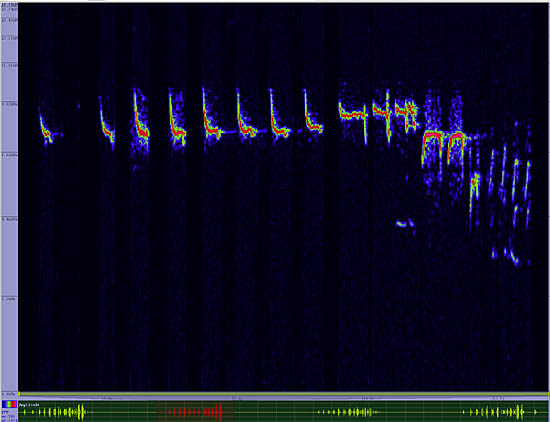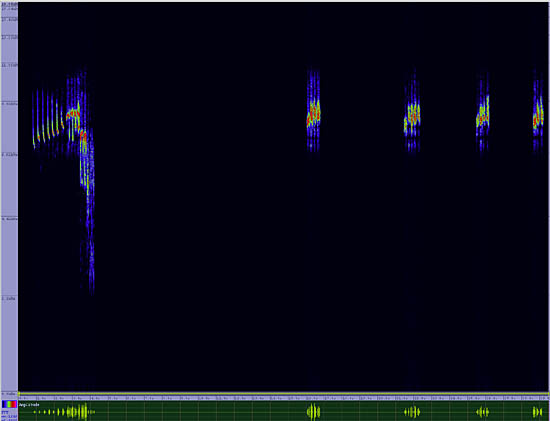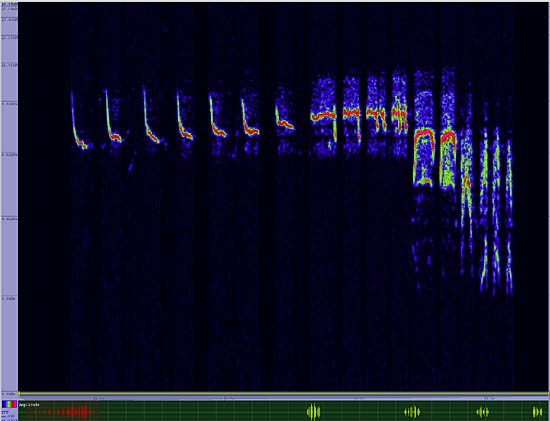Golden-crowned Kinglet
Regulus satrapa

Perching
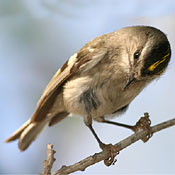
Length: 4 in. (10 cm )
Common in mixed species foraging flocks in deciduous and coniferous forests, this kinglet eats insects, spiders gleaned from bark and leaves, and in the fall it eats some fruits. The Golden-crowned Kinglet is very active and constantly flicks its wings. The small nest hangs from a branch high in a conifer and is made of moss, lichens and spider webbing.
The four-digit banding code is GCKI.
Bibliographic details:
- Article: Golden-crowned Kinglet
- Author(s): Dr. Biology
- Publisher: Arizona State University School of Life Sciences Ask A Biologist
- Site name: ASU - Ask A Biologist
- Date published:
- Date accessed:
- Link: https://askabiologist.asu.edu/activities/bird/golden-crowned-kinglet
APA Style
Dr. Biology. (). Golden-crowned Kinglet. ASU - Ask A Biologist. Retrieved from https://askabiologist.asu.edu/activities/bird/golden-crowned-kinglet
Chicago Manual of Style
Dr. Biology. "Golden-crowned Kinglet". ASU - Ask A Biologist. . https://askabiologist.asu.edu/activities/bird/golden-crowned-kinglet
Dr. Biology. "Golden-crowned Kinglet". ASU - Ask A Biologist. . ASU - Ask A Biologist, Web. https://askabiologist.asu.edu/activities/bird/golden-crowned-kinglet
MLA 2017 Style
Be Part of
Ask A Biologist
By volunteering, or simply sending us feedback on the site. Scientists, teachers, writers, illustrators, and translators are all important to the program. If you are interested in helping with the website we have a Volunteers page to get the process started.

